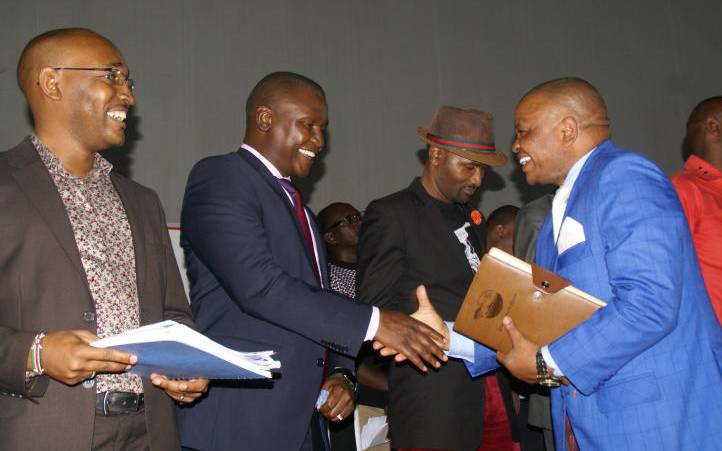×
The Standard e-Paper
Smart Minds Choose Us

Musician Steve Mkawasi (left) presenting petitions to the Director of the Permanent Presidential Music Commission Dr Donald Otoyo during a stakeholders round table at the Kenya Film Centre in Nairobi yesterday. [PHOTO: GEORGE ORIDO]
Artistes representing various genres met yesterday to discuss what is ailing the creative industry and plot the way forward.